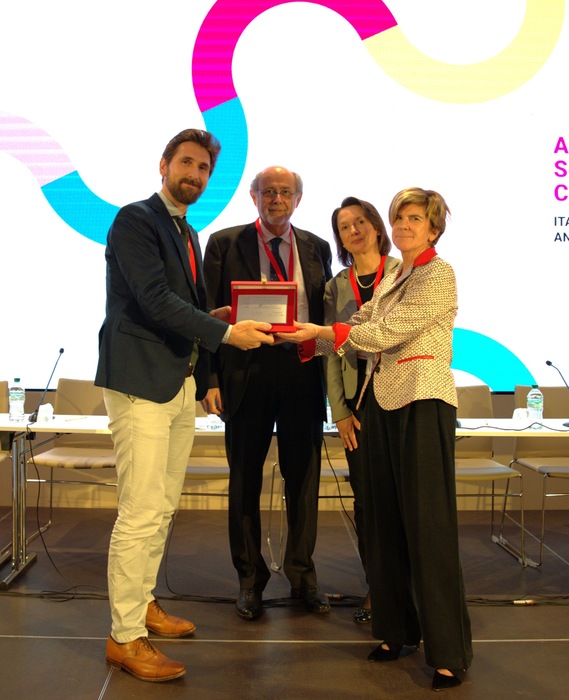(ANSA) – ROME, MAY 30 – Matteo Gastaldi, head of the research section and of the Neuroimmunology Laboratory of the National Neurological Institute of a scientific nature of the Mondino Foundation in Pavia, is the winner of the Rita Levi Montalcini 2023 award, assigned by Aism, Italian Multiple Sclerosis Association, and its Fism Foundation, to young researchers who have distinguished themselves for their excellence and the results obtained. Gastaldi is the author of 80 scientific publications, of which 15 as first author, in the field of biomarkers for multiple sclerosis and related pathologies. “I fell in love” says the researcher many times, speaking of his career as a neurologist and scholar. Falling in love and scientific results are not poles apart: in Gastaldi’s case, the passion is for “translational research, i.e. for research which, when successful, has an enormous impact on clinical practice and on people who have had a important diagnosis linked to an autoimmune disease”. The 2023 Rita Levi Montalcini prize was awarded to Dr. Gastaldi for “his ongoing contributions to research on multiple sclerosis and other related autoimmune diseases”. His research focuses on so-called “autoantibodies” which have been found to be responsible for autoimmune diseases now distinct from multiple sclerosis, but which have long been confused with multiple sclerosis, such as neuromyelitis optica spectrum diseases and associated with anti-Mog antibodies. “In our laboratory – explains Gastaldi – we study in particular the antibodies directed against the myelin sheath or against other cells of the nervous system, such as astrocytes for example.
We have been working for several years to develop increasingly efficient methods for accurately measuring the presence of antibodies known as “anti-aquaporin 4” and “anti-MOG”. We now work to continue characterizing how these antibodies act to cause myelin damage in the central nervous system. This will make the distinction of these pathologies from multiple sclerosis increasingly efficient, and will change their clinical management”. “We recently worked on a research project funded by Fism – concludes Gastaldi – to identify new autoantibodies in multiple sclerosis and other demyelinating diseases. The preliminary results are directing us towards a new glial antibody present both in demyelinating diseases other than multiple sclerosis and in a small percentage of patients with multiple sclerosis, which could represent a biomarker in these conditions”. (ANSA).
breaking latest news © Copyright ANSA

